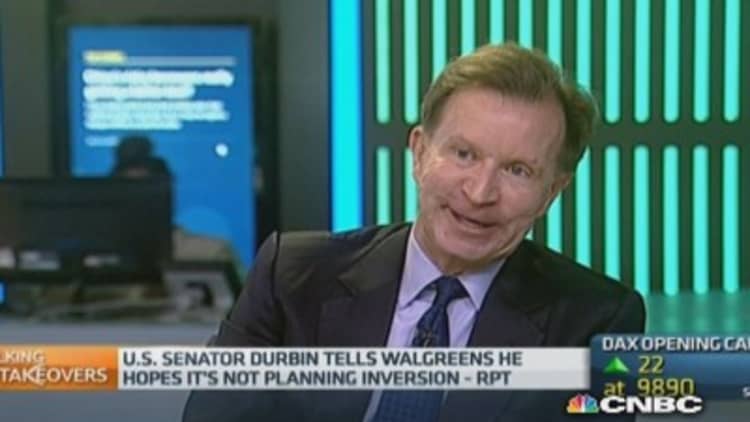
One of the banking world's leading dealmakers has criticized mergers made just for tax purposes – and predicted that the U.S. will soon simplify its tax structure to put an end to such deals.
"Tax can be one of three or four legs on the table, but it is not a strategic logic. It's an additional benefit but it shouldn't be the primary reason to do something," John Studzinski, senior MD and global head, Blackstone Advisory Partners, told CNBC.
"In the current environment, you have a lot of sophisticated activism which supports strategic logic and penalises stupid deal-making."
This year, a raft of mergers have been proposed which are partly or primarily motivated by tax. The best-known is probably Pfizer's controversial $118 billion bid for U.K. pharma company AstraZeneca.
The proposed deal, which was partly motivated by the planned use of a "tax inversion" – where a U.S. company avoids U.S. tax on overseas revenues by spending them abroad – lacked "clarity of strategic vision" according to Studzinski.
And using tax as one of the motives behind a transaction makes it more difficult to go over the head of your target's board and straight to shareholders, a process known as going hostile, he argued.
Read MorePharma M&A isback – can it cure the sector's ills?
"It's hard to do a hostile deal when you are trying to do a reverse takeover and an inversion. That doesn't work. It's like trying to get a rich person to marry you when in fact they in fact they control the finances, the structure," he told CNBC.
The rush to tax inversion could be halted soon by U.S. regulation, Studzinski believes. High-profile deals like Pfizer's, or smaller pharmaceutical company AbbVie's ongoing wooing of Ireland-based Shire, have raised eyebrows in the U.S. government on both sides.
"You'd be surprised at the number of companies in America looking at the inversion structure… The punchline ultimately in Washington is you will have a lower and simpler corporate tax rate agreed at some point," he said. A top line rate of around 25 percent (the current nominal highest corporation tax rate is 35 percent) is the most likely outcome, he argued.
Follow us on Twitter: @CNBCWorld


